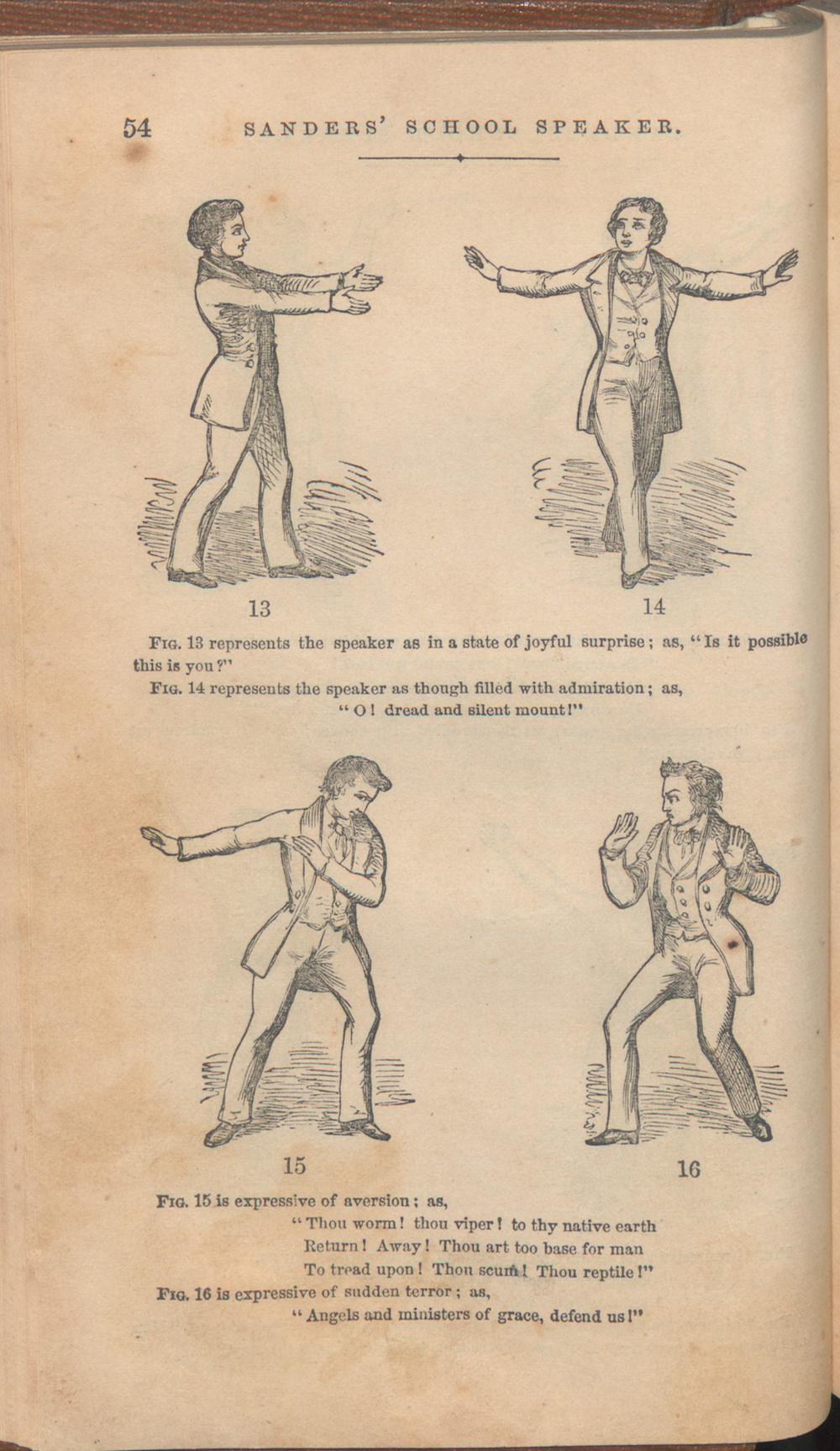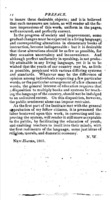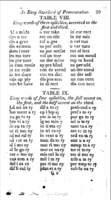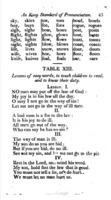Lessons
The American Spelling Book Containing the Rudiments of the English Language is an "improvement" upon previous installments of spelling books written by Noah Webster. Despite another publication, Webster establishes in the preface how the changes made are minimal. In the wake of other authors competing, this is potentially his attempt to reinscribe his authority and singularity in the standard of American English. With the intent to be distributed throughout schools in the United States, Webster has to both legitimize his past work, but also adapt to a plurality in defining the terms of standardization.
A majority of the book is composed of spelling lessons organized by accents, cadence, and length. Words are repeated for pages on end, however, towards the end of the book, Webster begins to introduce reading lessons for students to "learn their duty". This introduces the ways in which Noah Webster articulates an association between language use and morality. Webster concludes with a series of fables, but frames them with general rules and behaviors regarding social relations.
In Race and the Rise of Standard American, Bonfiglio identifies Webster as being a key interlocutor in the processes of standardizing English pronunciations. Evident in the preface, Webster attempts to rearticulate his already established authority by advocating for limited changes in the light of other authors proposing alternative systems of classification. A singular standard, he argues, while is unrealistic, is worth being sought after in the hopes to make the acquisition of the standard easier for children. Interestingly, he remarks public opinion could have power to keep the canon in his own court, providing an interesting call to action for the reader and frames the book as having potential for complete authority in defining standard American. Bonfiglio argues that figures like Webster exploited their authority to perpetuate their language ideology, not just a standard system of rules, as it relates to race, class, and power. And while Bonfiglio's larger argument pertains to race, the wave of immigration had not presented itself as an issue during the time of Webster's writings, so he can be seen as articulating primarily a document to class their youth into the hegemonic system their creating. Within his argument, though, is the explanation of the nuanced ways in which key figures like Webster used external factors, like morals, to bring salience to the reader. Good language is always presented with moral guidelines or an example of the good life, and so the standardization of the English language becomes intimately apart of the creation of tropes surrounding any "other" outside the White Christian male. As much as this document has a purpose for education, it also functions as a social tool, with Webster using the singular standard of the English language as a platform to reinscribe his authority and classed language ideology.



